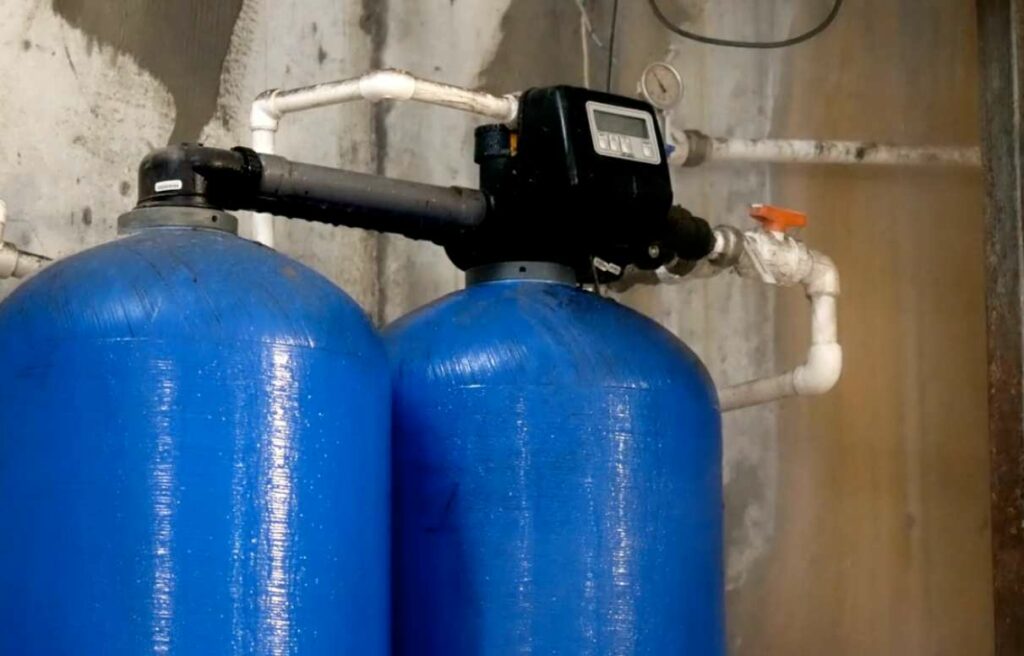
In your home, pressure tanks make sure water flows consistently. But what happens when the pressure in a pressure tank becomes too high? Here we are gonna discuss the consequences.
What are the potential consequences of a pressure tank that is too high?
Numerous plumbing systems depend on pressure tanks to ensure steady water pressure at home. However, if the pressure in the tank gets too high, it can bring about various undesirable outcomes, potentially impacting your daily routines and raising safety concerns. Let’s explore the potential consequences of a pressure tank with excessive pressure:
Impacts on Plumbing
The strain from heightened pressure on pipes and plumbing fixtures may result in cracks, leaks, or bursts, requiring expensive repairs, potential water damage, and the possibility of mold growth.
Water Hammer
When water flow is abruptly interrupted, due to closing a faucet or valve, the surge of pressure can create a loud banging or hammering noise in the pipes, known as a water hammer. This mostly damages pipes, fittings, and appliances connected to the plumbing system.
Premature Wear and Tear
Elevated pressure can expedite the deterioration of plumbing elements, including faucets, valves, and water heaters, resulting in premature malfunctions and necessitating replacements.
Reduced Water Flow
While it may seem counterintuitive, excessive pressure can reduce water flow. This is because the pressure is forcing water through pipes so quickly that it can create turbulence and reduce the overall flow rate.
Increased Water Bills
An excessively high-pressure tank may result in water wastage due to leaks or inefficient water usage, leading to increased water bills and unnecessary water consumption.
Safety Hazards
In extreme cases, an excessively high-pressure tank can rupture or explode, releasing a powerful surge of water and potentially causing injuries or property damage.
What is the ideal pressure for a pressure tank?
The optimal pressure for a pressure tank is contingent upon the particular system and its needs. As a general guideline, aim to set the pressure within the range of 35 to 55 pounds per square inch (psi). This ensures the tank delivers sufficient water flow while safeguarding against excessive pressure that might harm pipes and fixtures.
Here’s a breakdown of the ideal pressure range and its implications:
35-40 psi
This range is suitable for homes with lower water pressure requirements, such as those with a single-story layout and fewer appliances. It guarantees sufficient water flow for everyday activities while reducing the likelihood of water hammer.
40-50 psi
This range is considered a standard pressure setting for most homes. It ensures an ample water flow suitable for multi-story homes with numerous appliances and fixtures, all while maintaining a safe pressure level.
50-55 psi
This range is suitable for homes with higher water pressure needs, such as those with multiple stories, multiple water outlets, or irrigation systems. It ensures adequate flow for peak water demand but should be monitored closely to avoid exceeding the safe pressure limit.
Could a High Pressure Tank Cause Water to Keep Running After Shutting Off the Main Valve?
Yes, a high pressure tank could potentially cause water running after shut off. If the tank is not properly pressurized, it could lead to increased water pressure in the system, causing water to keep running even after the main valve is shut off.
Can a pressure tank that is too high make my water bill go up?
If your pressure tank is too high, you might notice a spike in your water bill. This is primarily due to the potential for leaks caused by elevated pressure, leading to unnecessary water wastage. Moreover, the heightened pressure can strain your appliances, potentially increasing water usage.
Here are the reasons why a high-pressure tank can increase your water bill:
- Leaks: High pressure can put stress on the seals and joints of your pipes, causing them to crack or leak. Even small leaks can waste a lot of water over time. The EPA estimates that one dripping faucet can waste up to 2,700 gallons of water per year.
- Inefficient appliances: High pressure can make your appliances work harder, which can also use more water. For example, your dishwasher may use more water to clean dishes when the water pressure is high.
- Water hammer: Water hammer is a loud banging noise that occurs in pipes when water flow is abruptly interrupted. This can be caused by high pressure in the pressure tank. Pipes, fittings, and appliances are at risk of damage from water hammer, leading to leaks and other problems that can contribute to a rise in your water bill.

Leave a Reply